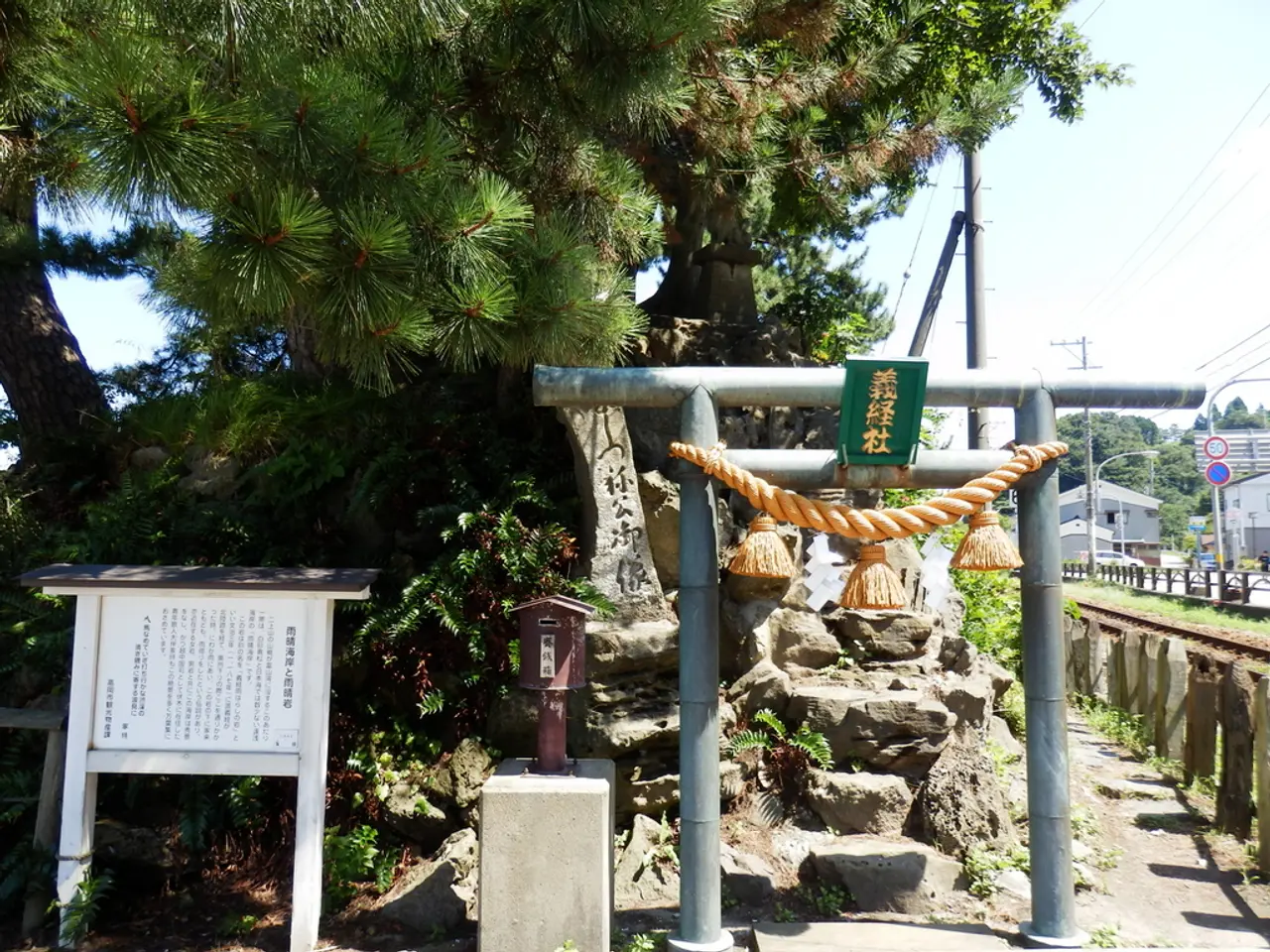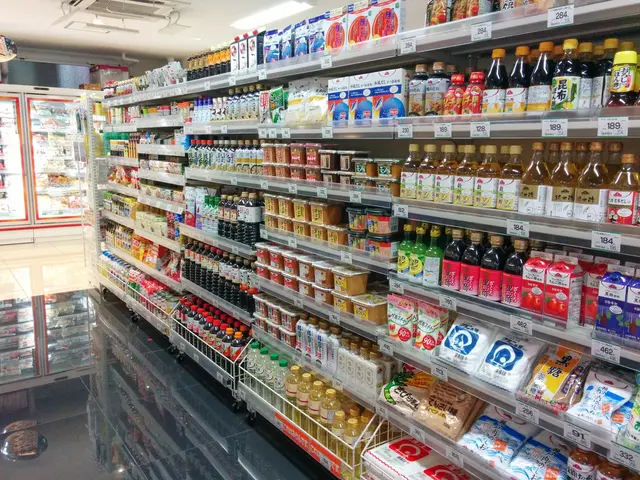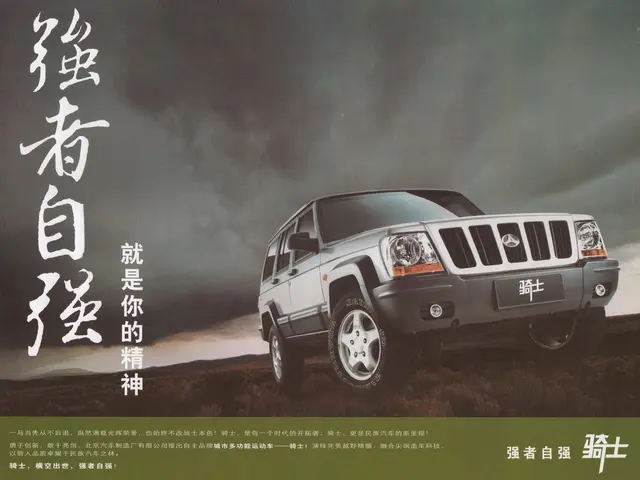Lithium mine production by CATL temporarily halted for a period of 3 months due to an expired permit, according to a recent report.
In the heart of Jiangxi province, Yichun, often referred to as the "Lithium Capital of Asia," CATL's Jianxiawo lithium mine has temporarily halted production due to the expiration of its mining permit on August 9, 2025. The company is currently in talks with government agencies to renew the license, but regulatory processes and Beijing's tightening control over the lithium industry could delay the resumption of mining for at least three months [1][2][3].
The suspension impacts approximately 65,000 tonnes of lithium carbonate equivalent (LCE) annually, accounting for around 6% of global lithium output and 7% of CATL's total monthly LCE production in China [1][5]. As a result, lithium prices have surged noticeably.
The lithium carbonate futures on the Guangzhou Futures Exchange surged by their daily limit of 8%, reaching over 80,000 yuan (~$11,200) per tonne [1][3][4]. Spot prices for battery-grade lithium carbonate in China also rose significantly, topping 75,500 yuan per tonne shortly after the news and increasing further in subsequent days [1][4].
While CATL states the mine suspension will have little effect on its overall operations due to its scale and other sources of lithium, the closure feeds into broader concerns about lithium supply tightening. This could potentially drive raw material cost increases for battery and electric vehicle (EV) manufacturers globally [1][4][5].
The suspension aligns with Beijing's broader regulatory crackdown on industries with excess capacity, including lithium mining, as part of an "anti-involution" initiative aimed at ensuring more compliant and controlled extraction practices [2][4].
The decline in lithium prices could potentially benefit EV manufacturers by reducing the cost of batteries. However, the current price of battery-grade lithium carbonate has dropped to about RMB 70,000 per ton, while CATL's cash production cost at the lithium mine was reportedly RMB 100,000 per ton [1][4][5]. This price difference could impact the profitability of lithium producers.
Lithium is one of the key raw materials for batteries, which typically account for a significant portion of the cost of an electric vehicle (EV) model. The current lithium price decline could, therefore, have a ripple effect on the EV industry.
It's important to note that this is not the only factor affecting the lithium market. For instance, the withdrawal of BYD's plans to build a lithium plant in Chile could affect the supply of lithium in the market [6].
In summary, the permit expiration and ensuing production halt at a major lithium mine operated by CATL has caused lithium prices to rise noticeably and raised concerns about supply chain tightness. This could pressure costs for battery production and the broader EV industry, particularly if more regulatory suspensions occur in China's lithium sector [2][4][5].
References:
[1] Bloomberg. (n.d.). CATL Suspends Lithium Mining at Yichun Mine as Prices Soar. Retrieved from https://www.bloomberg.com/news/articles/2025-08-15/catl-suspends-lithium-mining-at-yichun-mine-as-prices-soar
[2] Reuters. (n.d.). China's lithium mine suspension adds to supply chain concerns for battery makers. Retrieved from https://www.reuters.com/business/autos-transportation/chinas-lithium-mine-suspension-adds-supply-chain-concerns-battery-makers-2025-08-16/
[3] Financial Times. (n.d.). China's lithium mine suspension adds to supply chain concerns for battery makers. Retrieved from https://www.ft.com/content/e6e067f6-f50a-4d3c-9e7b-31b194164d9e
[4] Wall Street Journal. (n.d.). China's Lithium Mine Suspension Adds to Supply Chain Concerns for Battery Makers. Retrieved from https://www.wsj.com/articles/chinas-lithium-mine-suspension-adds-to-supply-chain-concerns-for-battery-makers-11660705101
[5] The Verge. (n.d.). China's lithium mine suspension could impact EV battery prices. Retrieved from https://www.theverge.com/2025/08/15/22441241/china-lithium-mine-suspension-catl-jianxiawo-yichun-jiangxi-province-battery-prices
[6] Bloomberg. (n.d.). BYD Abandons Plans for Lithium Plant in Chile. Retrieved from https://www.bloomberg.com/news/articles/2024-09-10/byd-abandons-plans-for-lithium-plant-in-chile
- The production halt at CATL's Jianxiawo lithium mine in Yichun, known as the "Lithium Capital of Asia," contributors to around 6% of global lithium output.
- The temporary closure of the mine is part of Beijing's regulatory crackdown on industries with excess capacity, including lithium mining, as part of an "anti-involution" initiative.
- The suspension has led to a surge in lithium carbonate futures on the Guangzhou Futures Exchange, reaching over 80,000 yuan (~$11,200) per tonne.
- The rise in lithium prices could potentially drive up costs for battery and electric vehicle (EV) manufacturers worldwide, given that lithium is a key raw material for batteries.
- Furthermore, the withdrawal of BYD's plans to build a lithium plant in Chile could add to the market's supply concerns, potentially impacting the overall lithium supply.
- Despite CATL claiming the mine suspension will have little effect on its overall operations, a prolonged closure could strain the environmental-science, finance, and energy sectors, particularly the EV industry, due to increased costs and potential ripple effects.




